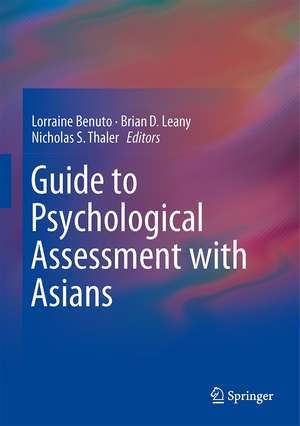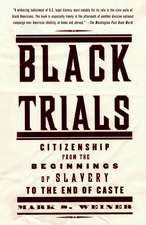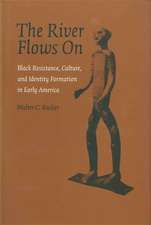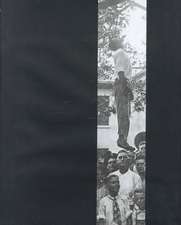Guide to Psychological Assessment with Asians
Editat de Lorraine T. Benuto, Nicholas S. Thaler, Brian D. Leanyen Limba Engleză Hardback – 26 iun 2014
The Guide to Psychological Assessment with Asians synthesizes real-world challenges, empirical findings, clinical knowledge and common-sense advice to create a comprehensive framework for practice. This informed resource is geared toward evaluation of first-generation Asian Americans and recent immigrants across assessment methods (self-report measures, projective tests), settings (school, forensic) and classes of disorders (eating, substance, sexual). While the Guide details cross-cultural considerations for working with Chinese-, Japanese-, Korean and Indian-American clients, best practices are also included for assessing members of less populous groups without underestimating, overstating or stereotyping the role of ethnicity in the findings. In addition, contributors discuss diversity of presentation within groups and identify ways that language may present obstacles to accurate evaluation. Among the areas covered in this up-to-date reference:
- Structured and semi-structured clinical interviews.
- Assessment of acculturation, enculturation and culture.
- IQ testing.
- Personality disorders.
- Cognitive decline and dementia.
- Mood disorders and suicidality.
- Neuropsychological assessment of children, adolescents and adults.
- Culture-bound syndromes.
| Toate formatele și edițiile | Preț | Express |
|---|---|---|
| Paperback (1) | 385.94 lei 6-8 săpt. | |
| Springer – 23 aug 2016 | 385.94 lei 6-8 săpt. | |
| Hardback (1) | 394.68 lei 6-8 săpt. | |
| Springer – 26 iun 2014 | 394.68 lei 6-8 săpt. |
Preț: 394.68 lei
Preț vechi: 415.45 lei
-5% Nou
Puncte Express: 592
Preț estimativ în valută:
75.52€ • 79.13$ • 62.43£
75.52€ • 79.13$ • 62.43£
Carte tipărită la comandă
Livrare economică 11-25 aprilie
Preluare comenzi: 021 569.72.76
Specificații
ISBN-13: 9781493907953
ISBN-10: 1493907956
Pagini: 492
Ilustrații: XV, 474 p. 1 illus.
Dimensiuni: 178 x 254 x 32 mm
Greutate: 1.06 kg
Ediția:2014
Editura: Springer
Colecția Springer
Locul publicării:New York, NY, United States
ISBN-10: 1493907956
Pagini: 492
Ilustrații: XV, 474 p. 1 illus.
Dimensiuni: 178 x 254 x 32 mm
Greutate: 1.06 kg
Ediția:2014
Editura: Springer
Colecția Springer
Locul publicării:New York, NY, United States
Public țintă
Professional/practitionerCuprins
Guide to Psychological Assessment with Asian Americans: An Introduction.- Cross-Cultural Considerations with Chinese American Clients: A Perspective on Psychological Assessment.- Cross-Cultural Considerations with Japanese American Clients: A Perspective on Psychological Assessment.- Cross-Cultural Considerations with Korean American Clients: A Perspective on Psychological Assessment.- Cross-Cultural Considerations with Indian American Clients: A Perspective on Psychological Assessment.- The Assessment of Acculturation, Enculturation, and Culture in Asian American Samples.- The Assessment Interview: A review of Structured and Semi-Structured Clinical Interviews available for use among Asian Clients.- Using Projective Tests with Asian Clients.- Assessing Personality using Self-Report Measures with Asian Clients.- IQ Testing and the Asian Client.- Assessing Effort & Malingering with Asian Client.- Assessing Mood Disorders and Suicidality in Asians.- Assessment of Anxiety with Asians.- Assessing Substance-Related Disorders in Asian Clients.- Assessing Sexual Dysfunction in Asian Clients.- Assessing Eating Pathology in Asian Americans.- Assessing for Personality Disorders in the Asian Client.- Assessing Culture Bound Syndromes.- Assessment of Dementia: Screening for Cognitive Decline with Asian Clients.- Assessing for Schizophrenia in Asian-Americans.- Assessing Sleep Disorders in the Asian Client.- Assessing Somatoform Disorders with the Asian Client.- Assessing the Asian Child & Adolescent: Special Considerations.- Assessment of Behavioral Disorders.- School-Based Assessment with Asian Children & Adolescents.- Neuropsychological Assessment with Asian Children & Adolescents.- Neuropsychological Assessment with Asian Adults.- Assessing Risk, Recidivism, and Dangerousness in Asians.- Forensic Assessment with the Asian Client.
Notă biografică
Lorraine Benuto received her doctoral degree in clinical psychology from the University of Nevada, Las Vegas. She is a licensed clinical psychologist and a post-doctoral scholar at the University of Nevada, Reno, where she provides treatment to victims of sexual assault, sexual abuse and child physical abuse. She is project coordinator and therapist the Victims of Crime Treatment Center at the University of Nevada, Reno. Dr. Benuto completed her APA-accredited internship at the VA in San Juan, Puerto Rico where she delivered psychological services to a culturally diverse clientele presenting with depression and anxiety. Dr. Benuto has extensive experience delivering evidence-based treatments and conducting psychological assessments with the Latino population. She has delivered professional presentations at state, national and international conferences on topics related to cultural competence and is co-editing Handbook of Adolescent Health Psychology for Springer. Nicholas S. Thaler is a post-doctoral fellow at. He completed his internship in 2012 at the Oklahoma Health Sciences Center Neuropsychology track and received a Ph.D. in clinical psychology at the University of Nevada, Las Vegas. He has published over fifteen articles focusing on childhood and adult disorders including traumatic brain injury, attention deficit/hyperactivity disorder and bipolar disorder. His work has covered neuropsychological and social cognitive impairments associated with these illnesses and how such impairments might be predictive of functional and psychosocial outcomes. Nicholas is also committed to promoting cross-cultural neuropsychological competency among minority and underrepresented groups and has extended his research towards this endeavor.
Textul de pe ultima copertă
To effectively serve minority clients, clinicians require a double understanding: of both evidence-based practice and the cultures involved. This particularly holds true when working with Asian Americans, a diverse and growing population.
The Guide to Psychological Assessment with Asians synthesizes real-world challenges, empirical findings, clinical knowledge, and common-sense advice to create a comprehensive framework for practice. This informed resource is geared toward evaluation of first-generation Asian Americans and recent immigrants across assessment methods (self-report measures, projective tests), settings (school, forensic), and classes of disorders (eating, substance, sexual). While the Guide details cross-cultural considerations for working with Chinese-, Japanese-, Korean-, and Indian-American clients, best practices are also included for assessing members of less populous groups without underestimating, overstating, or stereotyping the role of ethnicity in the findings. In addition, contributors discuss diversity of presentation within groups and identify ways that language may present obstacles to accurate evaluation. Among the areas covered in this up-to-date reference:
Designed for practitioners new to working with Asian clients as well as those familiar with the population, the Guide to Psychological Assessment with Asians is exceedingly useful to neuropsychologists, clinical psychologists, health psychologists, and clinical social workers.
The Guide to Psychological Assessment with Asians synthesizes real-world challenges, empirical findings, clinical knowledge, and common-sense advice to create a comprehensive framework for practice. This informed resource is geared toward evaluation of first-generation Asian Americans and recent immigrants across assessment methods (self-report measures, projective tests), settings (school, forensic), and classes of disorders (eating, substance, sexual). While the Guide details cross-cultural considerations for working with Chinese-, Japanese-, Korean-, and Indian-American clients, best practices are also included for assessing members of less populous groups without underestimating, overstating, or stereotyping the role of ethnicity in the findings. In addition, contributors discuss diversity of presentation within groups and identify ways that language may present obstacles to accurate evaluation. Among the areas covered in this up-to-date reference:
- Structured and semi-structured clinical interviews.
- Assessment of acculturation, enculturation, and culture.
- IQ testing.
- Personality disorders.
- Cognitive decline and dementia.
- Mood disorders and suicidality.
- Neuropsychological assessment of children, adolescents, and adults.
- Culture-bound syndromes.
Designed for practitioners new to working with Asian clients as well as those familiar with the population, the Guide to Psychological Assessment with Asians is exceedingly useful to neuropsychologists, clinical psychologists, health psychologists, and clinical social workers.
Caracteristici
Provides specific guidelines for working with Asian clients Includes up-to-date research on psychological tests used with Asian clients Addresses dilemma that traditional assessments do not emphasize language differences or test validity for ethnic minorities despite many Asian immigrants having English only as a second language or not at all















